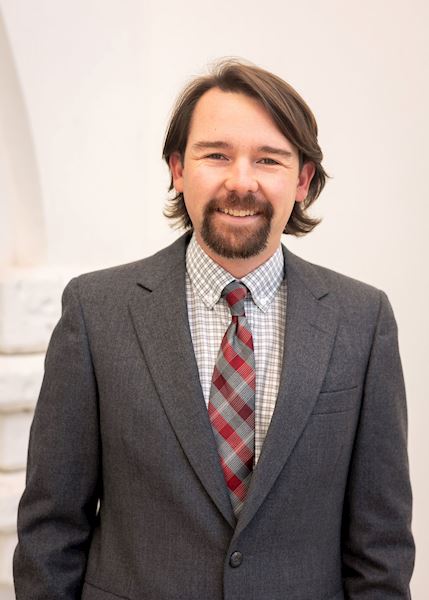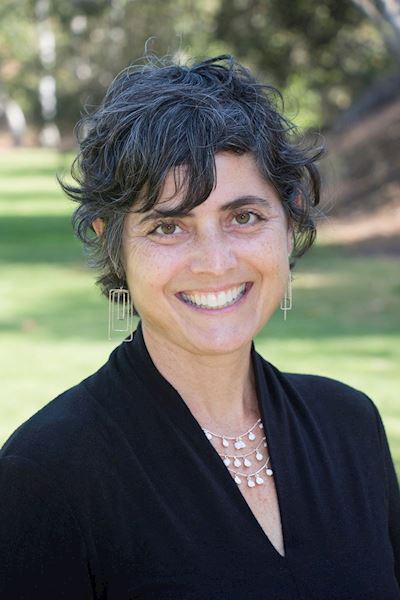The Promoting Student Success Series encourages campuswide conversations about promoting and advancing the culture of student success. This lecture series has been designed to inform the development of a vision for the role of WSU educators in promoting student success.
Each academic year, WSU educators hear from nationally renowned speakers regarding student success efforts in various contexts. Our goal is to identify strategies to better coordinate WSU efforts around student success and better define the roles of educators in promoting student success.
2023-2024
February 12, 2024
 Imagining Polarized Publics (and Our Role Within Them)
Imagining Polarized Publics (and Our Role Within Them)
Director of the Civic Learning Lab at The University of Alabama's Crossroads Civic Engagement Center
Keynote Address
Shepherd Union Ballrooms
What does it mean for an entire public to be polarized? Are we able to imagine the problem? Are we able to envision our place within it? In this keynote address, Dr. A. Jackson Harris (University of Alabama) explores these urgent questions and introduces an emergent theory of structurally dynamic public spheres. By imagining how publics transform with greater and lesser degrees of polarization, students and educators alike are able to visualize the relational effects of toxic polarization and, more importantly, understand the need for civic skills, dialogue, and cross-cutting relationships.
Workshop
Fostering a Civic Development Ecology on Campus and Beyond
There is a recognized mission in higher education to develop graduates who are inspired and equipped to contribute to a thriving democratic society. Our tendency, however, is to view student civic development as a linear process, and one which occurs only in the classroom or in the traditional co-curricular world of student programming. This mindset risks excluding nontraditional students, at a minimum, and limiting the potential civic learning of all. Drawing on the theories of Campus Ecology (Banning & Kaiser, 1974) and Developmental Ecology (Bronfenbrenner, 1979, 2005), this workshop explores an ecological model for student civic development. This ecological perspective underscores the importance of being more intentional about the ways we work together to prepare students for civic leadership in their communities and democracy. Likewise, by attending to the diversity of “college experiences,” it encourages educators and administrators to tap into the near-infinite opportunities for implementing the co-creative strategies necessary to the development of civic values, knowledge, skills, and actions in today’s student populations.
Dr. A. Jackson Harris is a writer, speaker, and public educator. Jackson serves as Director of the Civic Learning Lab at The University of Alabama's Crossroads Civic Engagement Center. His primary responsibilities in this role include the implementation of democratic learning programs, curriculum development and delivery, and consultation on dialogue-based courses and programming. To his work, he brings over a decade of workshop facilitation experience and leadership training.
Jackson's professional background includes leading roles in national non-profit organizations: Southern Region Vice President of the National FFA Organization and Regional Director of the National Wild Turkey Federation. He holds a Bachelor of Arts degree in Community Development, a Master of Arts degree in Communication Studies with a focus in Rhetoric and Political Discourse, and a Doctor of Philosophy in Communication and Information Sciences. His scholarship has been focused on the polarization of public spheres and educating for democracy.
August 21, 2023
 College Belonging for Students
College Belonging for Students
Director of the Center for Educational Excellence, Professor of Sociology, University of San Diego
Keynote Address
Austad Auditorium
What are colleges getting wrong about fostering a sense of belonging for students? How do students' many identities shape their experiences, their particular hurdles and challenges around belonging? Belonging is more than making friends and joining orgs. Understanding how belonging happens in the classroom (academic belonging) and how it happens in the campus culture (campus-community belonging) allows us to recognize the important role we play in offering belonging to our students rather than expecting them to go and find it for themselves. Join us to learn more about how the dynamics of belonging work and everyday strategies we can employ to build a stronger academic community for our students and ourselves.
Fostering Academic Belonging: Practical Strategies for Faculty
SU 404
What are the signs that students feel that they belong academically in college? They describe it as feeling competent; confident enough to raise their hand in class or talk to their professors one-on-one; and comfortable enough to study with peers. What can faculty do to foster academic belonging in our students? Come and find out! By making small shifts in our everyday interactions with students we can make a big difference in their college success.
Lisa Nunn is the director of the Center for Educational Excellence and a professor of sociology at the University of San Diego where she is also involved in issues of diversity, equity, inclusion, and social justice. Inclusion is at the forefront of her work. Nunn cares deeply about sense of belonging in the USD campus community. First-generation college students and first-year students are at the center of her interest in belonging, and faculty’s sense of belonging is at the center of the work she does in her role as director of the Center for Educational Excellence.
Nunn’s scholarship centers on students’ experiences, students’ identities, and students’ overall success and wellbeing. Her most recent book, College Belonging, follows first-year college students for two years to see how they navigate their new campus homes and what kinds of obstacles they face to developing a sense of belonging there. As a sociologist, she looks closely at communities and how they function. As a cultural sociologist and an organizations scholar, Nunn approaches research questions about student belonging by looking at what each university is doing with its policies, offerings and structures that foster a particular campus culture at each school. She also systematically interviews students to see what campus feels like to them, from their eyes, walking in their shoes. In doing so, she has been able to outline ways that small changes in teaching and in everyday interactions with students can make a big difference in their lives.
You can access the videos of previous presentations by enrolling in the Promoting Student Success Canvas course in three easy steps:
1. Go to: https://weber.instructure.
2. Log in using your Wildcat username and password, (if you are not already logged in on the browser.)
3. Click the "Enroll in Course" button located on the right side of the screen.
Please peruse the materials and feel free to contribute to the dialogue about what we can do to promote student success even more or better than we already do at WSU.

